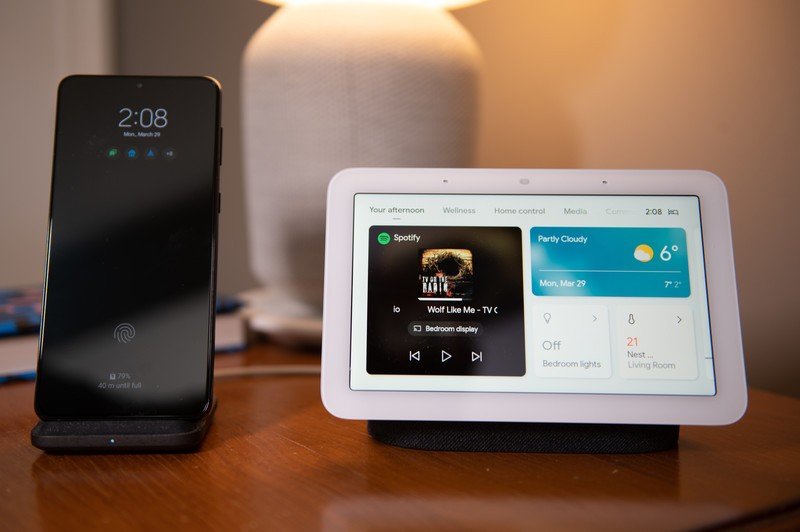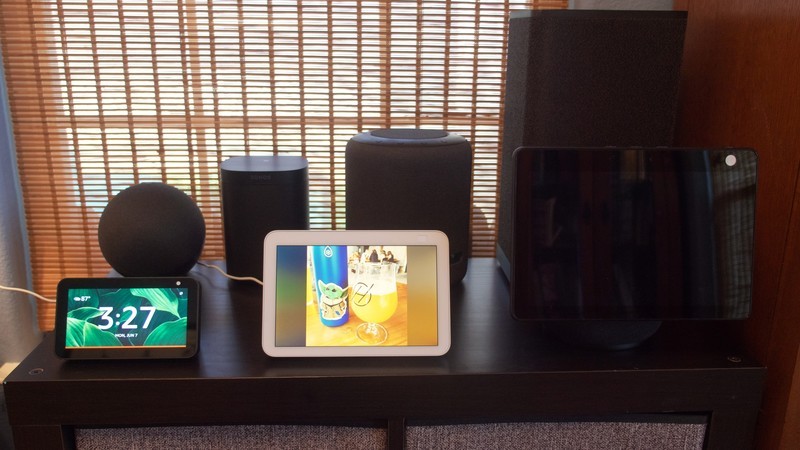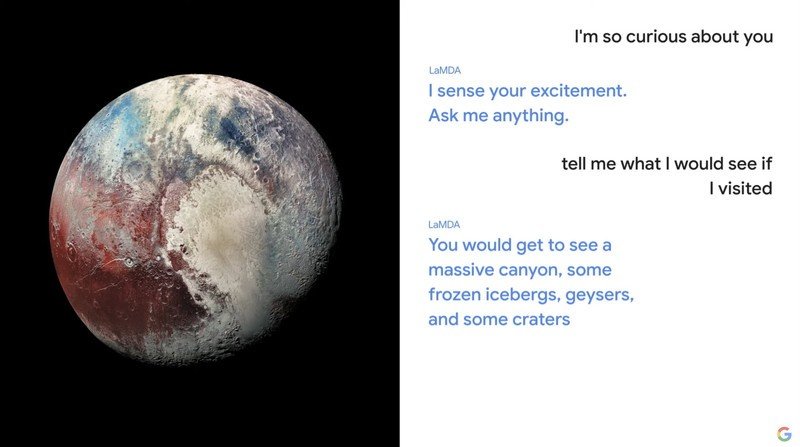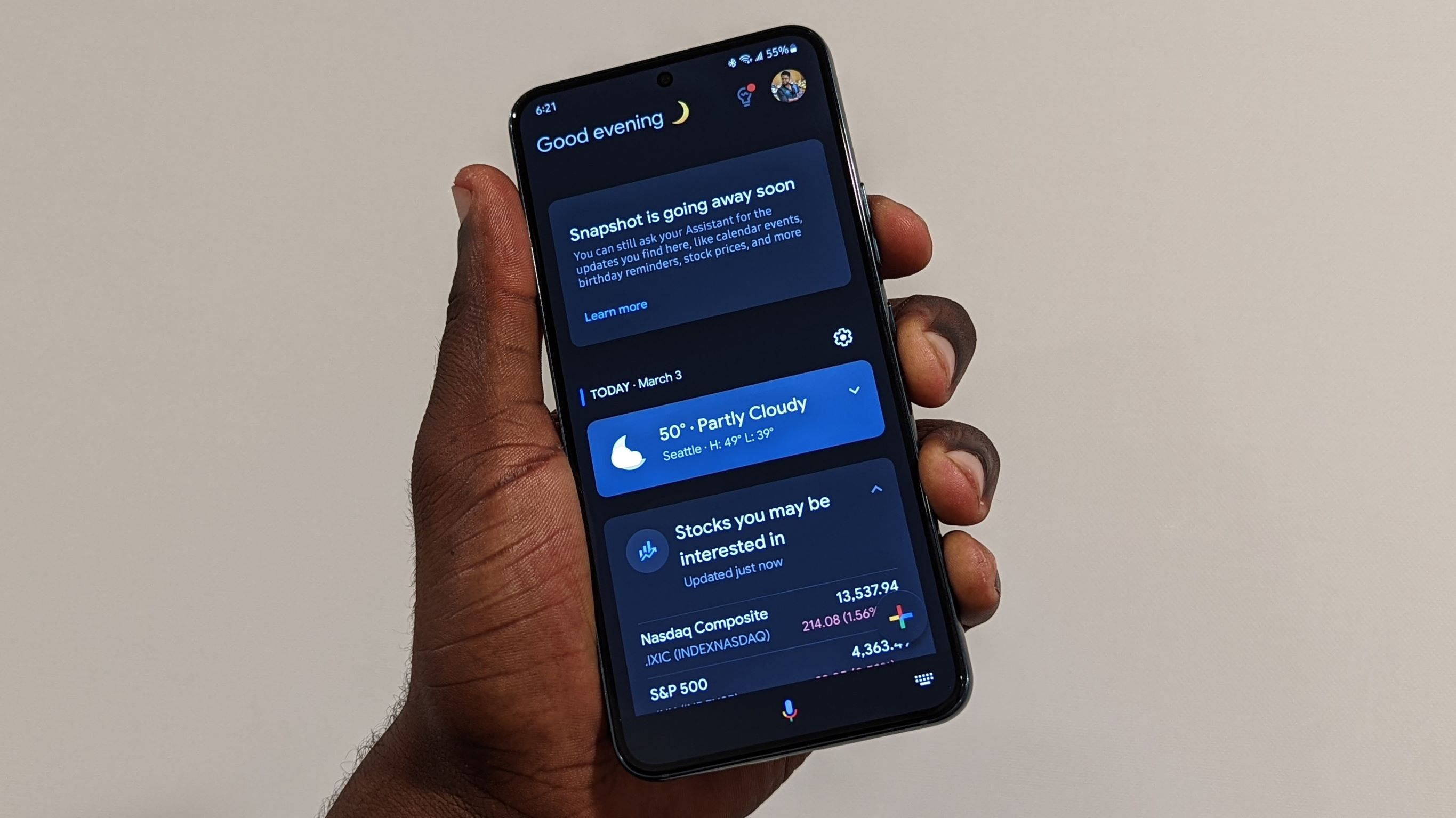It's time smart assistants evolved beyond fixed wake words like "Hey Google"
From the Editor's Desk

While reviewing the Samsung Galaxy S22+, I toggled Bixby Voice to test its response time, then left the always-listening setting on out of sheer laziness. Every few days, the Bixby activation chime will pop up out of nowhere, asking me to repeat myself or answering questions I didn't ask.
Why? Because I recently adopted a cat named Blue that my partner and I like to call "Silly Baby" in a sing-song voice (don't judge, everyone baby-talks to their pets). And apparently, that sounds just enough like "Hi Bixby" to Samsung's algorithms.
Bixby isn't the only overly chatty assistant in our place. Our Echo Show 8 mostly works as intended, but Alexa will randomly cut in with, "Sorry, I didn't get that" or "Here's something I found on the web" in the middle of regular conversations. We're unsure what word or phrase causes this, so we've gotten used to shouting "Alexa, that wasn't for you" at the hapless AI.
And Google Assistant lets you reduce the mic sensitivity, in response to its own consumer complaints about false positives.
Amazon's solution was to change the Alexa wake word to three other options: computer, Amazon, or Echo. But choosing the first two would mean censoring those words out of regular discussions, and Echo sounds similar enough to "go" that it seems even more prone to trigger false positives from everyday phrases. So we stick with the default option.

Whichever smartphone, smart speaker, or smart display you own, you will deal with some false positives. Letting companies store your voice profile helps a bit with word accuracy. But talk long enough, and one random string of syllables will inevitably sound like a hotword.
Why hasn't this problem gone away? For starters, because companies want you to repeat company branding over and over. Say "Hey Siri" or "Hey Google" enough times, and you'll start associating answered questions or smart home controls with that brand. So even if a different word or phrase like "xylophone" would be less likely to appear in everyday language, it wouldn't have the marketing oompf they want.
Be an expert in 5 minutes
Get the latest news from Android Central, your trusted companion in the world of Android
Brands also want you to think of your assistant as a person, which is why they put so much effort into preparing charming answers that simulate a personality. There's a reason why 3 in 4 Android Central readers thank their assistants when they complete tasks. If you see Alexa as a helpful artificial person with a name, you're less likely to switch smart home ecosystems.
There's also likely some engineering difficulty in getting the assistant to respond properly to different phrases, leading to more missed queries or slower response time. Google even joked about this during its I/O 2018 livestream, when Kevin Durant kept saying "Yo, Google," and someone joked that "I'm sure the engineers would love to update everything" and switch to that.

But even acknowledging all that, I'd argue Google at least could easily pull off a better selection of wake words. Assistant now lets you activate commands with Quick Phrases or "stop" Google Assistant without a wake word. Plus, in the most recent I/O, Google introduced its new LaMDA tech where the Assistant can have full multi-query dialogues to answer all of your questions — though it's still a ways off.
Google is the king of customization options. It could easily let you substitute different words after "Hey" that aren't as easy to say accidentally or get picked up from a commercial.
It would also ensure that people with multiple smart speakers and phones in close proximity can have specific wake words for different devices, so they don't all activate at once from a single phrase.
Assistant is intelligent enough to support another phrase, one that won't trigger your Nest every time you hear "Hey Google" in a TV commercial. And it would make Siri and Bixby look rigid and backward by comparison, since I find it less likely Apple or Samsung would branch out in the same way. It's Google Assistant and Alexa that lead the smart assistant pack and have the AI brains to pull this off.
On the topic of Amazon, it's already proven that it can provide alternatives to Alexa. I would just prefer that its wake word options expand — to a few more fixed options at least, or (best case scenario) our own custom phrases.

Smart homes in 2022 don't offer much in the way of excitement. The universal standard Matter should arrive before the end of 2022, but it's been delayed multiple times, leaving smart home devices fractured across different ecosystems. Most people only use the simplest Alexa Skills or Google Actions. Google is killing Snapshot (above) for Assistant.
The only exciting news we've spotted is the upcoming Nest Hub running Android 13, but that's more about the touchscreen than the voice assistant behind it. I think we need something more to look forward to.
I can only hope future smart speakers and Android phones enable new and improved wake words. Otherwise, no matter how intelligent the AI gets, Alexa, Bixby, and Google Assistant will keep bursting into conversations uninvited like the Kool-Aid Man.

Michael is Android Central's resident expert on wearables and fitness. Before joining Android Central, he freelanced for years at Techradar, Wareable, Windows Central, and Digital Trends. Channeling his love of running, he established himself as an expert on fitness watches, testing and reviewing models from Garmin, Fitbit, Samsung, Apple, COROS, Polar, Amazfit, Suunto, and more.
